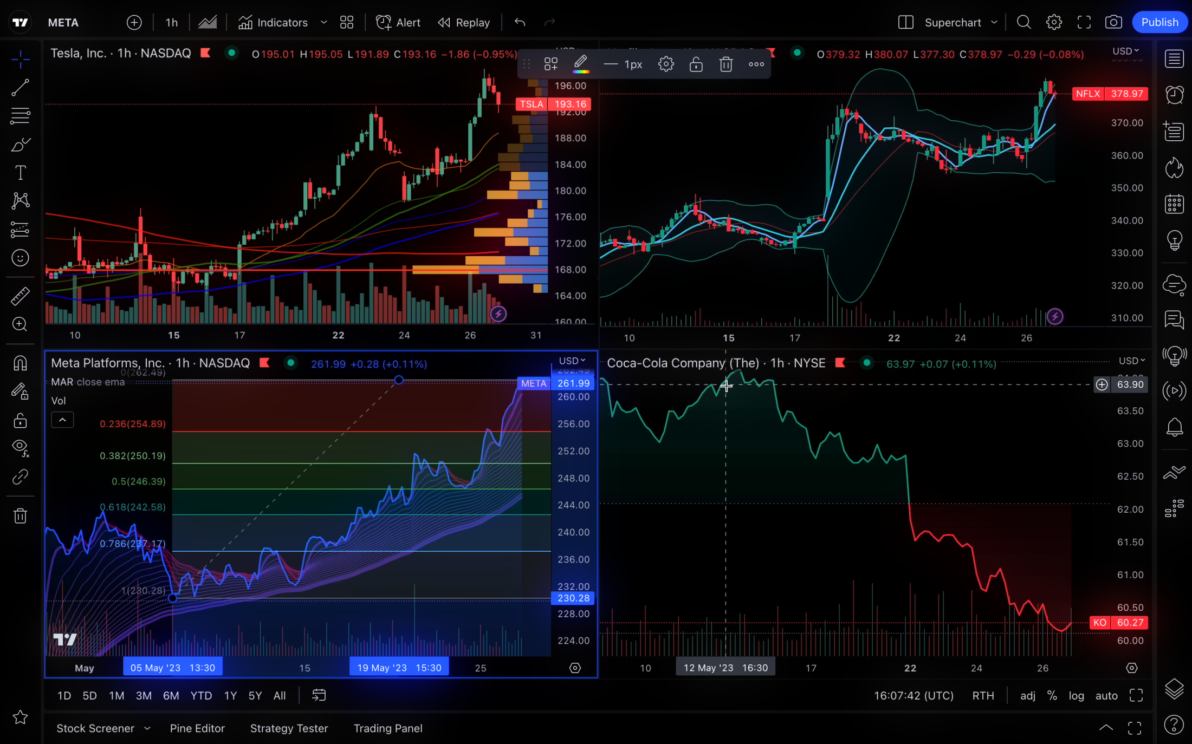Investing in Real Estate with REITs: Property Investment

Investing in Real Estate with REITs: Your Gateway to Property Investment
Reading Time: ~7 minutes
Many individuals regard real estate as a cornerstone of a diversified portfolio, yet direct property ownership often requires substantial capital, ongoing management, and familiarity with complex rental agreements. Real Estate Investment Trusts (REITs) provide an alternative path, allowing investors to gain exposure to residential, commercial, or specialised real estate—from retail centres in the US to housing complexes in Europe and even developments in emerging markets such as Colombia.
By investing in REITs, individuals can access global real estate markets without the large down payments or operational responsibilities typically associated with property ownership.
BrokerSuperMarket does not provide financial advice, nor does it guarantee positive financial outcomes. However, the appeal of REITs lies in their liquidity, accessibility, and income potential compared to direct real estate investments. This article explores how REITs function, why they are attractive to investors, and practical steps to begin investing. Additionally, case studies—including an example from Colombia—illustrate how REITs can operate in both developed and emerging markets.
Understanding REITs
What Are REITs?
A Real Estate Investment Trust (REIT) is an entity that owns, manages, or finances income-generating properties. Most REITs are required to distribute at least 90% of their taxable income to shareholders as dividends, making them appealing to income-focused investors.
This structure often results in higher dividend yields compared to standard equities, but no return is guaranteed.
Types of REITs
- Equity REITs: Own and operate physical properties, generating income primarily from rent payments.
- Mortgage REITs: Focus on real estate financing, investing in mortgages or mortgage-backed securities. These REITs generate income from interest payments.
- Hybrid REITs: Combine equity and mortgage strategies, providing both rental and financing exposure.
Each REIT type carries different risk and return characteristics.
- Equity REITs depend on market cycles, occupancy rates, and economic trends.
- Mortgage REITs are sensitive to interest rates and changes in credit conditions.
- Hybrid REITs integrate both models, diversifying risk factors.
Regardless of the category, REITs provide exposure to global property markets, sometimes including high-growth regions like Colombia, through publicly traded shares.
Why Invest in REITs?
1. Diversification
REITs enable real estate investment without direct property ownership, offering exposure to a portfolio of properties such as offices, apartments, shopping centres, or industrial parks. By spreading risk across multiple locations and tenant bases, REITs help mitigate the impact of downturns in any single property or region.
2. Liquidity
Unlike direct real estate purchases—which involve long selling processes and high transaction costs—REIT shares are typically traded on stock exchanges, allowing investors to buy and sell more quickly and efficiently, subject to market conditions.
3. Dividend Income
Since most REITs must distribute the majority of earnings as dividends, they often provide higher yields than standard stocks. For income-seeking investors, this can be a compelling feature. However, dividends may fluctuate based on economic conditions and market cycles.
4. Professional Management
REITs are managed by specialised real estate professionals, who handle:
- Property acquisitions and developments
- Tenant negotiations and leases
- Maintenance and asset optimisation
This setup allows shareholders to benefit from professional expertise while avoiding the operational burdens of direct real estate ownership.
Despite these advantages, returns remain uncertain. BrokerSuperMarket cannot guarantee investment success, as REIT performance depends on market conditions, interest rates, and regulatory policies. Due diligence is always essential.
Practical Guide to Investing in REITs
1. Research and Due Diligence
Before investing, it is crucial to evaluate each REIT’s property portfolio, including:
- Geographic locations
- Property types (residential, commercial, industrial, etc.)
- Occupancy trends and tenant stability
For example, a residential REIT might offer lower volatility, while a retail REIT could be more sensitive to consumer spending trends.
Platforms like BrokerSuperMarket help compare brokers that offer REIT investments, but investors must conduct independent research on management track records, dividend consistency, and tenant diversification.
2. Key Investment Metrics
Understanding REIT financials involves looking beyond standard valuation metrics.
- Funds From Operations (FFO): Measures cash-generating ability, adjusting for non-cash items like depreciation.
- Occupancy Rates: Higher occupancy usually indicates stable rental income, while high vacancy levels may signal risk.
- Lease Durations: Longer leases provide more predictability, whereas shorter leases may increase exposure to market fluctuations.
- Debt Levels: Highly leveraged REITs can be more vulnerable to rising interest rates.
3. Diversify Within REITs
Although a single REIT may hold multiple properties, diversifying across different REIT types and sectors—such as healthcare, logistics, and mixed-use developments—can provide additional risk protection.
4. Tax Considerations
REIT dividends do not always receive the same tax treatment as standard stock dividends. Depending on jurisdiction, they may be taxed as regular income. Assessing post-tax returns is essential.
5. Interest Rates and Market Timing
Since real estate values and financing costs are linked to interest rates, rising rates can increase borrowing costs for REITs, affecting profitability. While market timing is difficult, understanding interest rate trends can aid investment decisions.
Case Studies
1. Realty Income Corporation (O) – A US REIT Example
- Overview: Realty Income is a well-known US-based REIT that specialises in commercial properties such as convenience stores, pharmacies, and entertainment venues.
- Performance: Known for consistent monthly dividend payments, it has demonstrated relative stability through economic cycles. However, retail sector downturns can impact occupancy rates.
- Key Takeaway: This case underscores the appeal of dividend consistency and the importance of broad tenant diversification to mitigate risk.
2. Fondo Inmobiliario Colombia (FIC) – A REIT-Like Fund in an Emerging Market
- Overview: FIC is a Colombian real estate investment vehicle that owns shopping centres, office buildings, and logistics facilities across Bogotá, Medellín, and other major cities.
- Performance: FIC has benefited from urban expansion and increasing consumer demand. However, political shifts and market volatility can affect investor sentiment and returns.
- Key Takeaway: Investing in emerging market REITs can offer growth potential but often involves higher volatility and regional economic risks.
These examples highlight the diverse opportunities within REIT investing, whether in established or emerging markets.
Conclusion
Real Estate Investment Trusts (REITs) offer an alternative to direct property ownership, providing diversification, liquidity, and potential dividend income. From US-based REITs like Realty Income to Colombian real estate funds, these vehicles enable investors to access the property market without the burdens of direct management.
However, REITs are not risk-free. BrokerSuperMarket does not provide personalised investment advice, and economic shifts can impact returns. Careful evaluation of key metrics, tenant profiles, and broader market trends remains essential. When approached with due diligence, REITs can serve as a practical gateway into global real estate investing.
Disclaimer: This article is for educational purposes only and does not constitute financial advice. No investment strategy guarantees returns, and past performance is not indicative of future results. BrokerSuperMarket does not offer personalised investment advice or promise financial outcomes.
February 14, 2025 05:07:00am
TradingView is a highly popular financial charting platform that caters to trade...
September 07, 2024 18:19:52pm
The energy industry remains crucial to the global economy, with traditional sect...








 en
en es
es